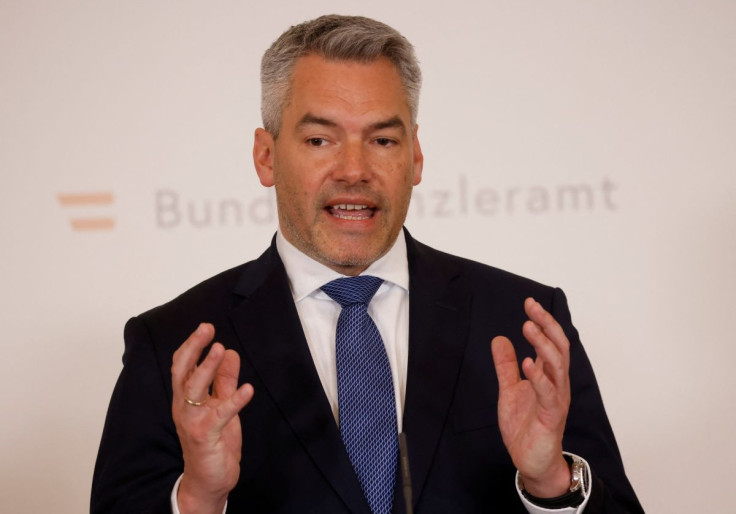Austria Says Russian Gas Still Flowing As It Scrambles For Alternatives

Russian natural gas deliveries to Austria are continuing unrestricted and there is no indication that will change, its government said on Wednesday while adding it is scrambling to find alternative sources.
Austria obtains 80% of its natural gas from Russia, a heavy dependency that it says will take time to end now that Russia's invasion of Ukraine has made plain the need to shift away from Europe's cheapest source of gas.
"Since the start of the war delivery volumes have not changed. In fact, they have increased," Austrian Chancellor Karl Nehammer told a news conference.
He and energy minister Leonore Gewessler added that the government was budgeting up to 5 billion euros ($5.3 billion) to fill the nation's gas reservoirs to 80% of capacity by the autumn from 18% now, on top of 1.6 billion euros already earmarked this year for a strategic gas reserve.
Nehammer repeated that when he met Russian President Vladimir Putin two weeks ago Putin assured him that Austria would keep receiving the contractually agreed volumes of gas and that Austria could keep paying in euros deposited at Gazprombank, which then converts them into roubles.
Russian energy giant Gazprom on Wednesday halted gas supplies to Bulgaria and Poland for failing to pay for gas in roubles. Nehammer said they had declined to use the payment system through Gazprombank that Austria, Germany and others have adopted.
At the same time, Nehammer said deliveries were not guaranteed since the pipelines that supply Austria run through Ukraine, and no one can know how the war will develop.
While working with the European Commission on joint purchases for European Union member states, Austria and its partly state-owned oil company OMV are looking to secure extra gas supplies, Nehammer said.
"There is Norwegian gas, there is gas from Azerbaijan - how can we bring these gas volumes to us?" he said.
($1 = 0.9422 euros)
(Writing by Francois Murphy; Editing by Jacqueline Wong and David Evans)
© Copyright Thomson Reuters {{Year}}. All rights reserved.





















